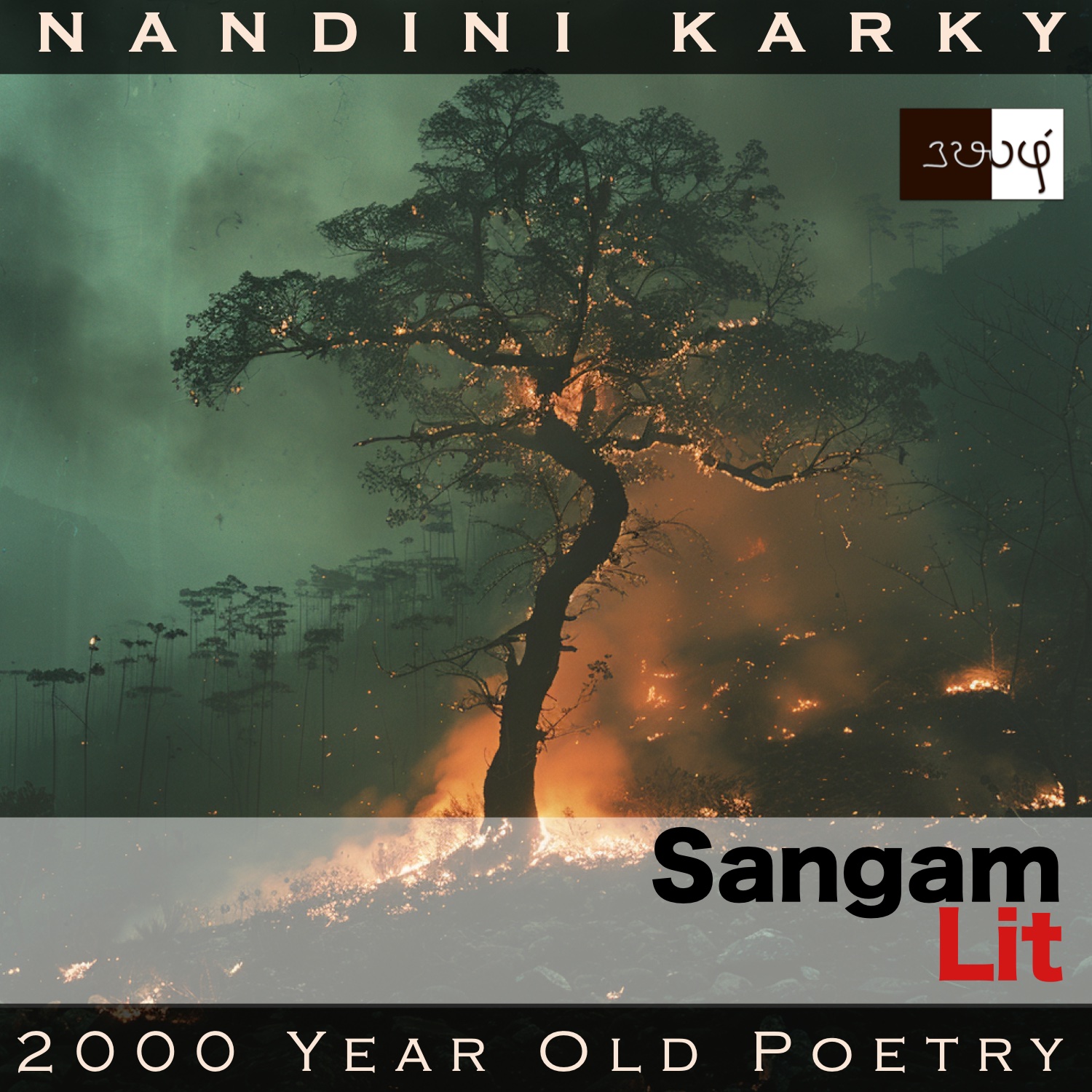Podcast: Play in new window | Download
Subscribe: Apple Podcasts | Spotify | Amazon Music | Android | iHeartRadio | TuneIn | RSS | More
In this episode, we listen to exchanges between a king and a girl’s father, as depicted in Sangam Literary work, Puranaanooru 349, penned by the poet Madurai Maruthan Ilanaakanaar. Set in the category of ‘Kaanji Thinai’ or ‘Defence’, the verse speaks about the danger to a town.

நுதி வேல் கொண்டு நுதல் வியர் துடையா,
கடிய கூறும், வேந்தே; தந்தையும்,
நெடிய அல்லது, பணிந்து மொழியலனே;
இஃது இவர் படிவம் ஆயின், வை எயிற்று,
அரி மதர் மழைக் கண், அம் மா அரிவை,
மரம் படு சிறு தீப் போல,
அணங்கு ஆயினள், தான் பிறந்த ஊர்க்கே.
A tiny verse with a collection of striking glimpses. The poet’s words can be translated as follows:
“Wiping the sweat on his brow with his sharp spear, the king speaks harsh words; As for her father, he speaks a lot, but says not humble words; This seems to be their natures. If this is to be, that beautiful, young maiden with sharp teeth, red-streaked, moist, rain-like eyes, akin to a small spark that falls on a tree, has brought death to the town of her birth.”
Time to delve deeper into the nuances. The poet starts with a snapshot of a king, as he stands there, wiping the drops of sweat on his forehead with his spear’s end. A moment to pause and reflect on this image. Here’s a king wiping his forehead not with a delicate silk handkerchief but with the sharp end of a spear- one that has no doubt, caused brutal events in a battlefield. This single-shot, single-line portrait is an excellent characterisation of the warlike personality of this king. Continuing with the words that the king seems to be speaking rather harshly, the poet then turns to describe the stance of the father, who seems to be talking for long but none of those words seem to have any humility or intention of bowing down before this king. Since the poet is remarking on the absence of humility, we can understand that this quality was expected in that situation.
Such seems to be the nature of these two men, the poet remarks, and then continues saying if there is no breakthrough between them, then that maiden, no doubt the father’s daughter, the one having neat teeth and moist eyes, will become the ruin of her village. To symbolise how, the poet concludes with the simile of a spark that falls on a tree and then destroys the forest entire. Subtly, the poet weaves in the ferocity of a forest fire that has such humble origins and equates it to that gentle maiden, who has brought destruction to the place of her birth because of her beauty. Just like how that single spark is not responsible for the forest fire and the credit in fact, must go to the hands that lit it, it’s not the girl who is to be blamed for the ruin but these men who are squabbling on behalf of their egos. In a tangent, reverting back to the interaction between the king and the father, it makes us wonder how the whole situation would have changed had the father spoken with more humility. A verse that subtly nudges us about the care and thoughtfulness needed when we have to say ‘no’ to someone or something.




Share your thoughts...